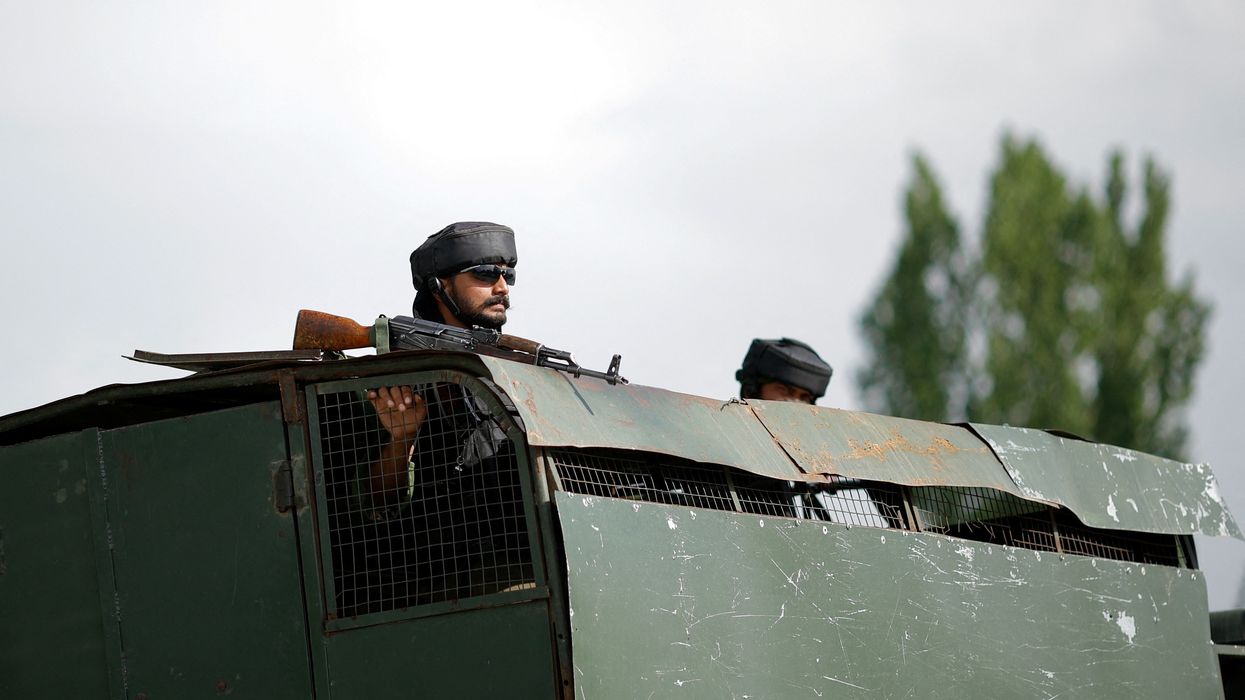PAKISTAN said on Wednesday that it has credible intelligence suggesting India may carry out a military strike within the next 24 to 36 hours. The statement comes amid rising tensions following an attack on tourists in Indian-administered Kashmir.
India has blamed Pakistan for the assault in Pahalgam last week, which was the deadliest attack on civilians in the region in 25 years. The relationship between the two countries has deteriorated since the incident.
Indian prime minister Narendra Modi gave the military "complete operational freedom" to respond to the attack during a closed-door meeting on Tuesday, a senior government source told AFP.
ALSO READ: Five key developments after the deadly Kashmir attack
Pakistan has denied any involvement in the incident. Information minister Attaullah Tarar said, “Any act of aggression will be met with a decisive response.”
"Pakistan has credible intelligence that India intends to launch a military strike within the next 24 to 36 hours using the Pahalgam incident as a false pretext," Tarar said in a statement early on Wednesday.
Foreign minister Ishaq Dar said Pakistan would not initiate a strike but would respond if attacked.
Leaders from several countries have urged both nations to show restraint. India and Pakistan have fought multiple wars since independence in 1947 and have a long-standing dispute over Kashmir, a region claimed in full by both but divided between them.
Around 1.5 million people live near the ceasefire line on the Pakistani side. Some residents are preparing underground bunkers as a precaution.
"We are cleaning the bunker to ensure that if the enemy attacks at any time, we are not caught off guard and we can bring our children to safety," said 42-year-old Muhammad Javed in the village of Chakothi.
ALSO READ: David Lammy urges de-escalation amid rising India-Pakistan tensions
The Indian army said on Wednesday that it had exchanged fire with Pakistani troops for a sixth consecutive night along the Line of Control (LoC), the de facto border in Kashmir.
A Pakistani security source told AFP that two drones were shot down on Tuesday after allegedly violating Pakistani airspace near the LoC.
Tensions have continued to rise since the Pahalgam attack, with diplomatic expulsions, border closures, and increased military activity.
Modi had earlier said, "I say to the whole world: India will identify, track and punish every terrorist and their backer. We will pursue them to the ends of the Earth."
The statements have raised concerns about a possible escalation. The US State Department said senior diplomat Marco Rubio would speak with Indian and Pakistani counterparts to urge calm.
UN Secretary-General Antonio Guterres spoke with Pakistan’s prime minister Shehbaz Sharif and Indian foreign minister Subrahmanyam Jaishankar on Tuesday and "offered his Good Offices to support de-escalation," according to his spokesman.
Sharif's office later said he had asked Guterres to "counsel India" to show restraint, while pledging to defend Pakistan’s “sovereignty and territorial integrity with full force in case of any misadventure by India”.
Indian police have issued wanted posters for three men accused of carrying out the Pahalgam attack. Two are Pakistanis and one is Indian.
All are said to be members of the Pakistan-based Lashkar-e-Taiba group, which is listed as a terrorist organisation by the UN.
Authorities have offered a reward of two million rupees ($23,500) for information on each suspect and have conducted mass detentions.
The Pulwama suicide bombing in 2019 was the deadliest attack in recent years in Indian-administered Kashmir, killing 40 security personnel. India carried out air strikes on Pakistani territory 12 days later.
(With inputs from agencies)





